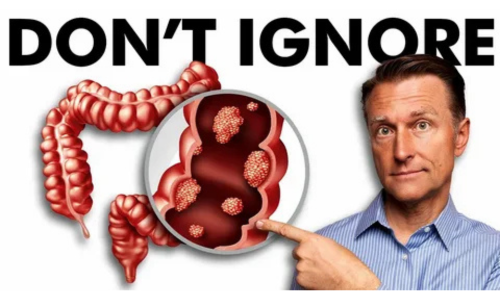
Colon cancer affects millions of people worldwide, often without clear early warning signs. While some symptoms are widely recognized, others can easily be overlooked or mistaken for less serious issues. Early detection is key, so here are six unusual signs of colon cancer that you should watch out for.
1. Unexplained Weight Loss
Losing weight without trying may seem like a positive change, but unexplained gradual weight loss could be an important warning sign of colon cancer. If your weight loss isn’t linked to changes in diet or physical activity, it’s crucial to consult a doctor to rule out potential health issues.
2. Persistent Fatigue and Weakness
Feeling constantly tired despite getting enough rest could indicate more than just a busy schedule. Chronic fatigue may be caused by anemia or other underlying conditions, including colon cancer. Don’t ignore persistent weakness—seek medical advice if it continues.
3. Changes in Bowel Habits
Sudden, unexplained changes in bowel habits, such as prolonged constipation, diarrhea, or alternating patterns between the two, can be early signs of colon cancer. Pay attention if these changes persist without any clear link to diet, stress, or illness.
4. Iron Deficiency Anemia
Iron deficiency anemia often points to chronic blood loss in the body. For some, this could be a result of undiagnosed colon cancer. If you’re diagnosed with anemia, ask your doctor to investigate the cause, especially if you experience additional symptoms like fatigue or pale skin.
5. Abdominal Pain or Discomfort
Persistent cramps, pain, or tenderness in your abdomen might seem harmless at first. However, if these symptoms don’t improve with typical remedies, it’s time to consult a healthcare professional. Chronic abdominal discomfort could be linked to colon cancer.
6. Unusual Blood in Stool
Noticing blood in your stool can be alarming, but it’s important to distinguish between causes. While hemorrhoids are a common culprit, dark or black stools could indicate bleeding in the upper gastrointestinal tract. Persistent rectal bleeding warrants immediate medical attention.
Take Action: Early Detection Saves Lives
Colon cancer often presents with subtle or unexpected symptoms, making it vital to pay attention to even the slightest changes in your body. Recognizing these signs and seeking prompt medical evaluation can significantly improve treatment outcomes.
If you notice any of these symptoms persisting or worsening, don’t hesitate to consult a healthcare professional. Remember, prioritizing your health and acting early can make all the difference.
Spread Awareness: If you found this information helpful, share it with your friends and family to help raise awareness about the importance of early detection. Together, we can fight colon cancer.
Leave a Reply